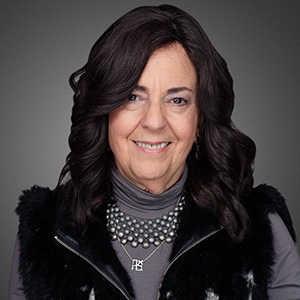Names? In Different Chapters

Many of us look at our childhood names with warm emotions

After my last column about “Home,” readers reached out to ask, “Who is Ahava Ehrenpreis, and when did she live in Detroit or Oak Park?” Just between us, the “me” who grew up in Detroit had different first and last names from the adult woman who today writes books and articles and lives in Brooklyn. Back then, I was Chavi Sperka.
How did that happen? Well, my maternal grandmother was Rivka, and my paternal grandmother was Leeba Chava. Why my father (Rabbi Joshua Sperka z”l), turned Leeba into its modern Hebrew variation remains a mystery, but I believe that his joy at the creation of the State of Israel motivated him to name me Ahava Rivka. (Please, no letters from Ivrit experts who question why my name isn’t Ahuva! I really don’t know, but my sister assures me that she was present at the naming and Ahava is my name.) But when I first entered Bais Yaakov, my “cool, modern, Hebrew name” morphed into my babbi’s more traditional, “Chava.”
Names… a simple, straightforward topic. A child is born to parents from the One Above. They give the child a particular first name — based on whatever reasoning (familial, literary, historical, Biblical, or random) — and their family name. It seems so uncomplicated. Well… it ain’t necessarily so.
“A rose by any other name would smell as sweet,” states Juliet to Romeo. Many of us look at our childhood names with warm emotions. Perhaps “Cookie” was an expression of affection by a doting father. Or, quite the opposite, an annoying sibling’s “Silly Milly” brings up a different sort of childhood memory.
Then there are those of the generation in which an “English name” was considered a parental responsibility. How many Yankys have ignored the pediatrician’s nurse calling, “Jason?” It was a sincere effort to give a child a recognizable name in the Diaspora, though it inadvertently creates future stressful interactions and mistaken identity.
Then comes the scenario in which a beautiful name is mauled by a sibling. The melodious Yonoson becomes “Nonie” because of a toddler who can’t pronounce three syllables in a row. Despite sincere effort from the parents, “Nonie” becomes the chosen name.
The name by which we are called connotes our standing at different stages of our lives. How many rabbanim have seen the astonishment on a congregant’s face when a childhood friend proclaims, “Messy Ezzy Klein, is that really you?” Changes in religiosity are often clearly delineated in a variation of name, no more than when I encountered one old college friend. “Heather Schwartz?” I questioned the chassidic woman in a sheitel with several peyos-coiffed little ones in tow. “Ah, yes,” her visibly uncomfortable reply began, “it’s me, but I am Chaya Surie now.”
A name can have an element of “mazel,” as the addition of a name for a choleh is accepted practice. I have heard a gadol recommend a name change during a difficult situation.
Then there is the disgruntled child who takes matters into his own hands. At the local swimming pool where her ten-year-old had lessons, my friend inquired how Yitzchak was doing. The instructor replied quizzically, “You mean David?” While Golda or Feigela or Gittele might have been gifted a beloved grandparent’s name (popular, perhaps in the shtetl), the child will declare that she is now Zahava or Tzipporah or Tova!
When I married, my husband insisted that I revert to my “given name,” Ahava. Still, my family and childhood friends call me Chavi to this day. I was touched when a post-marriage friend asked hesitantly, “Do you think we’ll ever be good enough friends that I could call you Chavi?”
So it goes. And whatever the potential mutations, we daven that the name called out by a joyful new father, when he is called up to the Torah or at the baby’s bris, will be filled with mazel as this newborn will celebrate the remainder of the brachah, “…to Torah, chuppah, and maasim tovim!”
(Originally featured in Family First, Issue 904)
Oops! We could not locate your form.



